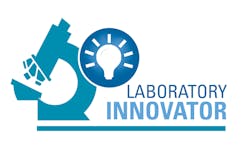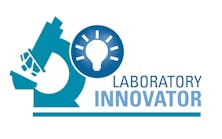GYN PATH was founded by my father, Philip A. Miles, MD, FACOG, FCAP in 1982 and specializes in women’s healthcare testing. My father, who is board certified in OB/GYN and Pathology, was one of only two in the country with these credentials. Dr. Miles, through his work and experience, knew that there was a link to HPV being the cause of cervical cancer. In the late 90’s we saw the potential for liquid based cytology and were the first lab in El Paso to offer ThinPrep® locally. Shortly thereafter, we brought in HPV testing and were the second lab in Texas to bring in Hologic’s ThinPrep Imaging system. This technology revolutionized the way we screened and treated patients with abnormal cytological results.
Your laboratory has been described as a “little lab family.” What advice or lessons learned do you have for other laboratory directors regarding improving work culture in clinical laboratories?
Everyone must have the same goal; do what is best for the patient and the treating physician. We value and appreciate our team, regardless of the position they hold. Our couriers are just as important as our MT’s and we consistently make them aware we cannot operate when any part of our team isn’t working as a cohesive unit. We have employees that have worked with us for over twenty years and strive to make sure they know how valuable they are to us, working effectively and efficiently in the best interest of the patients.
What is the most exciting new technology currently being used in your laboratory?
In 2020, we brought in the Aptima™ BV, CV/TV Assay by Hologic Corporation. The improved sensitivity and specificity of this assay over traditional methods in determining the underlying cause of vaginitis not only means identifying the right infection, but enabling the right treatment, and in turn, reducing the potential for recurrent or persistent infections. This FDA-cleared assay is an in vitro nucleic amplification test that utilizes real time transcription-mediated amplification (TMA), which provides an accurate and objective method for diagnosing vaginitis, a very common and complex health issue affecting millions of women each year.
What is one of the biggest challenges you have faced this year? What does the solution(s) look like?
Some of our biggest challenges have been declining reimbursements and the increase in “managed care" contract exclusions in favor of the larger regional and national labs. Our poor economy and increased inflation have been extremely difficult. Some solutions to this would be to reduce regulation, not allow managed care plans to exclude reputable providers, and not allow payers to reimburse providers less than the Medicare rate. We need to remove the middleman and put patients back in control of their health and the type of care they receive. We will never control costs when someone else is paying the bill.
You and your laboratory are involved in numerous charitable activities in the El Paso area! Could you share the details of some of these activities?
We feel it is important to give back to our community. El Paso is primarily a Hispanic community, and we know that cervical cancer is one of the leading causes of deaths in Hispanic women. We want to change that by educating women on the importance of getting screened. One event we sponsor annually is the “Mighty Mujer Triathlon,” which is an event for women only that consists of swimming, biking, and running. It’s such an inspiration seeing women of all ages participating in this amazing event while their families cheer them on. Another event we have sponsored is our local Humane Society K-9 Walk. While this event is dear to my heart as a foster mom, our goal is to educate women on the importance of getting screened. Cervical cancer is preventable and so are unwanted puppy and kitten litters by spaying and neutering our pets.






